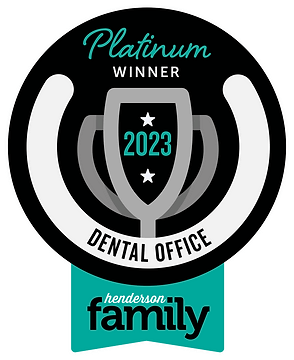Quick Links
Contact Us
Office Location
716 Second Street
Henderson, KY 42420
Office Number
(270) 827-5222

We offer a comprehensive denture process to help restore your smile and improve your oral health. Our dentists will provide you with high-quality dentures tailored to your unique needs. Here is an overview of our denture process:
During your initial visit, our dentist will assess your oral health, discuss your goals and expectations, and determine if dentures are the right solution for you. We will also take impressions of your mouth for accurate measurements.
Based on your consultation, our dentist will develop a personalized treatment plan that outlines the type of dentures that best suit your needs, whether it is complete dentures for those with no natural teeth or partial dentures for those with some remaining teeth.
We will take detailed impressions of your gums and any remaining teeth to ensure precise fitting of your dentures. These impressions will serve as a blueprint for crafting your custom dentures.
Using advanced materials and techniques, our skilled dental technicians will meticulously create your dentures in our dental lab. We prioritize aesthetics, comfort, and functionality to ensure your dentures look natural and fit comfortably.
Once your dentures are ready, we will schedule a fitting appointment. Our dentist will ensure that your dentures fit securely and comfortably in your mouth. We will make any necessary adjustments to achieve the perfect fit, ensuring optimal functionality and comfort.
Our team will provide you with detailed instructions on how to care for your dentures properly. This includes cleaning techniques, storage guidelines, and regular maintenance to ensure their longevity and your oral health.
We will schedule follow-up appointments to monitor your progress and make any necessary adjustments to your dentures. Regular check-ups are essential to ensure your dentures continue to fit properly and maintain your oral health.
At our dental office, we are committed to helping you regain your smile and confidence with our denture process. Contact us today to schedule a consultation and take the first step towards a healthier, more beautiful smile.
What’s the difference between conventional and immediate dentures?
Complete dentures are called “conventional” or “immediate” according to when they are made and when they are inserted into the mouth. Immediate dentures are inserted immediately after the removal of the remaining teeth. To make this possible, the dentist takes measurements and makes the models of the patient’s jaws during a preliminary visit.
An advantage of immediate dentures is that the wearer does not have to be without teeth during the healing period. However, bones and gums can shrink over time, especially during the period of healing in the first six months after the removal of teeth. When gums shrink, immediate dentures may require rebasing or relining to fit properly. A conventional denture can then be made once the tissues have healed. Healing may take at least 6-8 weeks.
What will dentures feel like?
New dentures may feel awkward for a few weeks until you become accustomed to them. The dentures may feel loose while the muscles of your cheek and tongue learn how to keep them in place. It is not unusual to experience minor irritation or soreness. You may find that saliva flow temporarily increases. As your mouth becomes accustomed to the dentures, these problems should diminish.
Should I use a denture adhesive?
Denture adhesive can provide additional retention for well-fitting dentures. Denture adhesives are not the solution for old, ill-fitting dentures. A poorly fitting denture, which causes constant irritation over a long period, may contribute to the development of sores. These dentures may need a reline or need to be replaced. If your dentures begin to feel loose, or cause pronounced discomfort, call us immediately.
Must I do anything special to care for my mouth?
Even with full dentures, you still need to take good care of your mouth. Every morning, brush your gums, tongue, and palate with a soft-bristled brush before you put in your dentures. This removes plaque and stimulates circulation in the mouth. Selecting a balanced diet for proper nutrition is also important for maintaining a healthy mouth.